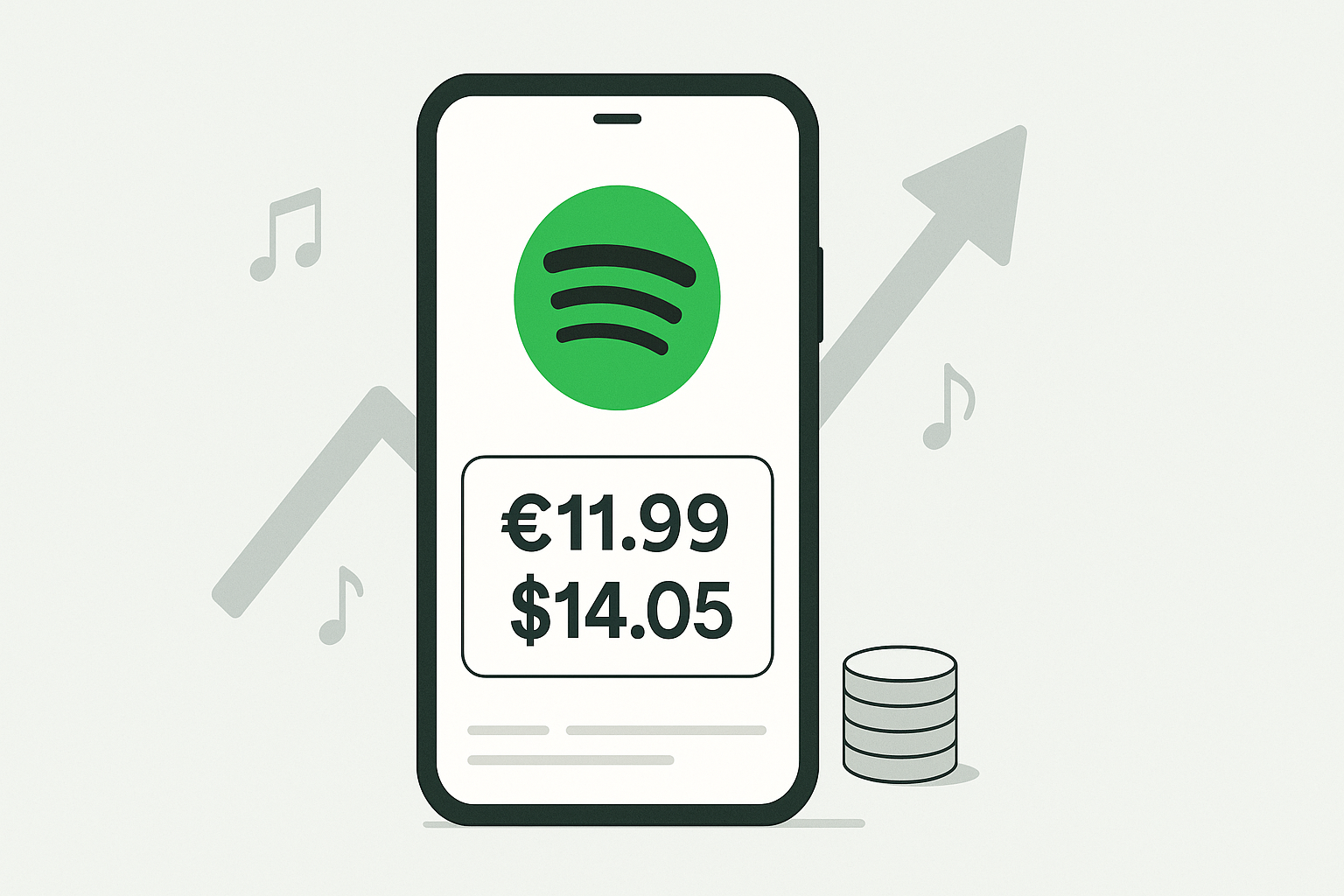Spotify's hitting subscribers with a price hike, bumping global subscriptions to €11.99 ($14.05) as it chases the ambitious—perhaps overly ambitious?—goal of reaching one billion users. The news dropped yesterday, with the Financial Times reporting that this increase fits into the streaming giant's broader push toward that elusive creature known as "profitability."
There's something almost poetic about watching subscription services evolve. Spotify has spent years dancing between growth and actually making money, trapped in that investor-expectation hell where Wall Street simultaneously demands massive scale and healthy profits. Now they've apparently decided their users are hooked enough to pay more without fleeing en masse.
I've watched this pattern play out across dozens of subscription businesses since covering the streaming economy in 2017. It always follows roughly the same trajectory: Company builds market share with bargain pricing, creates user habits and high switching costs, then—when users are sufficiently dependent—starts turning the revenue dial.
The million-dollar question is simple: How elastic is demand at this stage of Spotify's life?
The company's betting big that after you've built 200+ playlists, trained their algorithm to know you love obscure Finnish metal on Tuesdays and lo-fi beats when working, you're not going to jump ship over a few extra bucks. It's digital quicksand—the more you struggle with it, the more firmly embedded you become.
Timing here isn't accidental. This price bump arrives as Spotify has pushed beyond just music into podcasts and audiobooks. They're essentially telling us, "We're not the same service you signed up for; we're better and broader now." (Translation: pay up.)
Look, there's a certain irony watching the service that disrupted $15 CDs gradually nudge its way back to... $15 monthly fees. Except now you're renting access rather than owning anything. Two steps forward, one step sideways, I suppose.
What fascinates me most is the tension between their billion-user ambition and these higher prices. Typically, massive scale means keeping prices low—Business 101 stuff. By raising rates while chasing user growth, they're implicitly creating a two-tier strategy: squeeze more from wealthy markets while maintaining affordability elsewhere.
Having followed subscription businesses for years, I can tell you Wall Street analysts will be obsessively tracking churn numbers in coming quarters. The core question: Has Spotify created enough user dependency that price sensitivity has diminished? History suggests once users cross certain engagement thresholds, moderate price increases don't dramatically impact retention—but every service has its breaking point.
This signals something broader about our digital entertainment landscape. Between Netflix, Disney+, Apple Music and the rest all implementing their own price hikes, consumers face increasingly difficult choices about their monthly entertainment budgets. We might be approaching subscription fatigue—that ceiling where people start cutting services rather than adding more.
Daniel Ek, Spotify's sometimes-combative CEO, has never been shy about the company's profitability journey. This increase represents a concrete step in that direction and aligns with tech's broader shift from growth-at-all-costs toward (gasp!) actually making money—a pendulum swing that accelerated when interest rates climbed and venture capital got stingier.
The price hike represents a bet on Spotify's own indispensability. They're essentially telling users: "We're so embedded in your daily routine that an extra buck or two is meaningless." And to investors: "We can grow AND improve economics simultaneously."
Will it work? That depends entirely on whether those carefully curated playlists and personalized discoveries are truly worth what Spotify thinks they are. But one thing's certain—the era of artificially cheap digital services fueled by growth-obsessed investors is fading fast. The subscription economy is growing up, and adulthood means charging what you believe you're worth.
Sometimes that means losing friends along the way.
